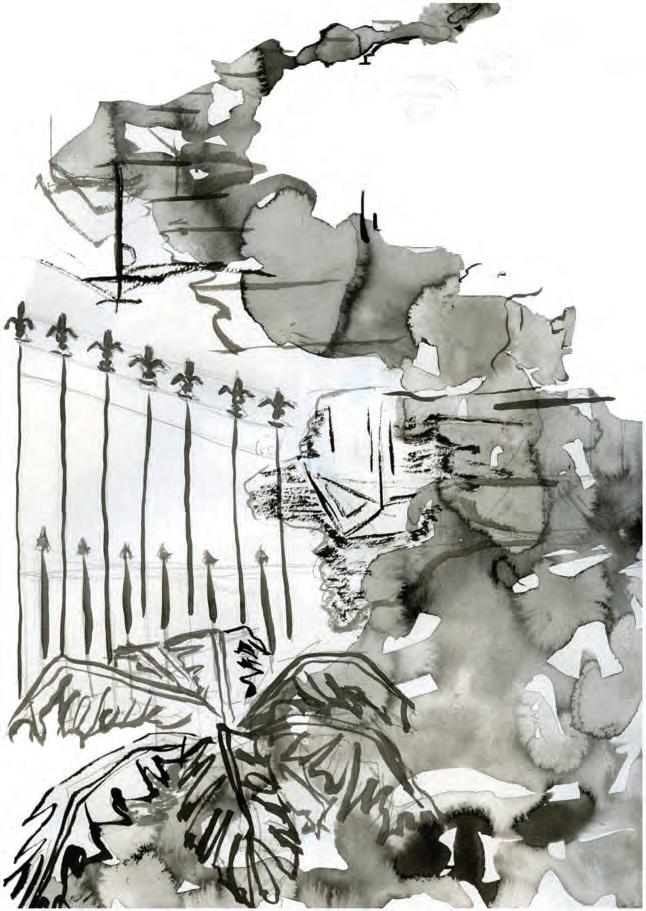
1 minute read
Let's be blunt
Experimental Jake Zawlacki and Sara Hardin
Baton Rouge, Louisiana, USA
Advertisement
I’m a white man writing about a city that is not my own. What can I offer? So, let's be blunt again
Perhaps an idea. An idea that this city is something even more unique than what has been claimed previously. That the word “city” fails to capture much meaning at all.
This city is a reflection, an inversion to me in a way. And it reflects.
When I have dodged hurricanes, packing up and driving to another state, I see fire.
I was eleven years old when the Cedar Fire came within a quarter mile of my childhood home. My friends that lived in the canyon said the propane tanks popped like bombs throughout the blaze.
When I see floods, I see ash, feel my throat constrict from the air. We wore masks long before a pandemic to keep the burnt fluttering pieces of the Earth from funding our lungs. There were times when school would be canceled because of air pollution, of smoke, of that pox born of fire.
When I dove into the pool of New Orleans, into the metaphysical swamp, into that substance of water and beer and daquiri and blood and urine and smoke and ash and fire, I was suspended, floating.
there’s this oft spoken idea of liminality, that a liminal space is one where something is between two other spaces. I don’t like it. Can liquid be between solid and gaseous? Does it need to be between two things? Or is it just liquid? [When does this space become the space not between? What if we sat here and rejected the spaces, but claimed our own, your own, my own. What does it look like to claim a section of the ocean? An inch of a river? A rainfall? A hurricane? How does that change how we think? How does that change how we treat each other?] I don’t like it because it assumes two natural states. And while that may feel “natural” (whatever that word means) I think it’s criminally narrow. Two spaces. There are an infinite number of spaces and we’ve picked two?



